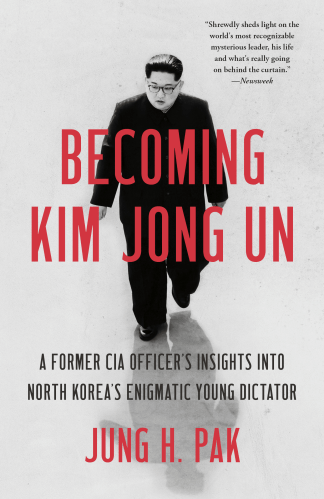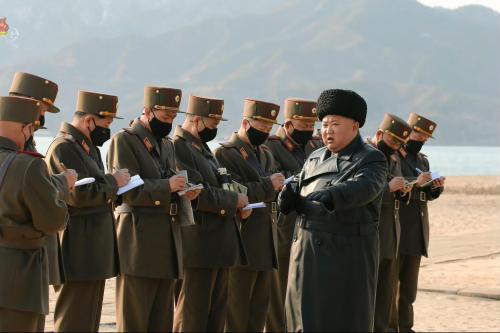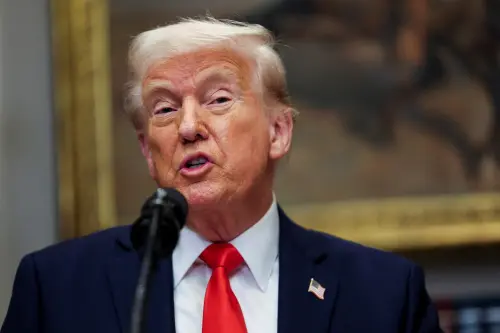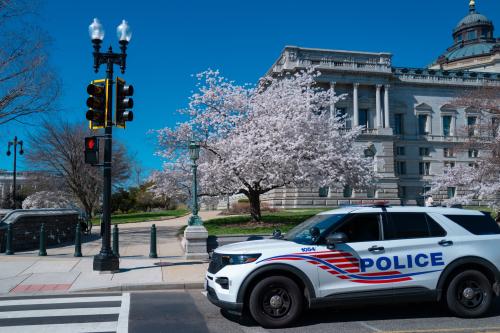South Korean president Moon Jae-in has had a good couple of weeks. Coronavirus was, in many ways, an opportunity for Moon to demonstrate his leadership skills and claim South Korea’s place in the world as a dynamic, technologically advanced, and bureaucratically skilled democracy.
Before the pandemic, things did not look great for Moon. In 2019, his approval rating had fallen to as low as 30% as a result of his country’s economic slowdown and a political scandal. His engagement policy with North Korea was going nowhere, and ties to Japan were at rock bottom. Critics predicted that the administration’s initial muddled pandemic response — marked by gaffes, controversy, and contradictory government statements — would sink his party’s chances at the polls in the April 15 legislative elections.
But buoyed by his administration’s ultimately successful handling of COVID-19, the ruling Democratic Party of Korea (and its affiliated group) won 180 of a total 300 seats in the National Assembly, an unprecedented margin of victory since South Korea’s transition to democracy in 1987. Two-thirds of the country’s eligible voters turned out during the global coronavirus pandemic, even as Britain, France, and almost 20 U.S. states postponed their elections, unable to secure their citizens’ safety if they tried to exercise their right to vote.
South Korea is now the toast of the town. The Washington Post, among other outlets, has touted South Korea for showing the world how “free, fair, and safe elections” can be done. These kudos are on top of the global plaudits Seoul earned for its widespread testing and treatment of COVID-19 infections, which allowed the country to avoid onerous lock-downs.
The country is now exporting that expertise to the world, as most governments — buckling under the weight of their slow responses, inaction, or unpreparedness — are grappling to glean best practices from a country that has often been overshadowed by its blustery, nuclear weapons-wielding neighbor to the north and its agency subsumed in the more dominant narrative about U.S.-China great power competition.
This moment is a unique opportunity for Moon to shine on the global stage.
This moment is a unique opportunity for Moon to shine on the global stage, afforded by the fact that South Korea is on the other side of the curve, while the rates of infection and death rise elsewhere, Beijing and Washington trade barbs, and the reputation of once-venerable international organizations like the World Health Organization are eroded.
Here’s how Moon can build his foreign policy capital.
First, President Moon can start in his own neighborhood by rebuilding ties to Japan. Bilateral relations deteriorated in 2019 when a trade dispute, stemming from simmering tensions over Japan’s use of forced labor and sex slavery during Japan’s colonization of Korea, damaged economic and security cooperation and whipped up nationalist fervor in both countries. That animosity reared its ugly head in early March, when South Korea still had the highest number of cases outside of China. Seoul snapped at Tokyo for instituting travel restrictions for South Koreans, calling the move an “unnecessary, excessive, and extremely regrettable” action driven by politics.
But with the wind at his back, Moon can reset ties to Tokyo by facilitating the quick delivery of tests and medical equipment to Japan, where the number of cases have spiked in recent days and Prime Minister Abe Shinzo has declared a state of emergency over the entire country. Moon should use this opportunity to generate goodwill among the people of Japan and encourage habits of cooperation, not just in public health, but also toward rebuilding economic and security partnerships. The momentum for cooperation would depend also on Abe’s willingness to set aside differences and salvage the relationship, even as some of his key priorities — the Olympics, for example — look more uncertain.
Second, Seoul can help shape the future of international cooperation on pandemics. The devastating and disruptive effects of the current pandemic has led to calls for restructuring U.S. national security priorities toward creating a sustainable infrastructure of global partnerships that would be ready to tackle future pandemics, which scientists assess are increasing in frequency. Having set up an impressive counter-coronavirus infrastructure that includes a wide network of testing facilities, local and central government coordination, private-public partnerships for treatment and care, and effective public information campaigns, the Moon administration is poised to be a critical influence in establishing a blueprint for how countries, individually and together, can tackle the next pandemic.
Finally, South Korea’s robust use of digital technologies to track cases has fed into the debate about civil liberties and privacy in an age of coronavirus. The government, without consent, has collected credit card histories, CCTV footage, and mobile phone geolocation data to trace confirmed and potential infections. Health authorities then contact any individuals who had been in close proximity to the infected individual for testing and quarantining, if necessary. Disinfection teams are dispatched to those locations and text messages are blasted out to residents of that locale to warn them about what places they should avoid or to alert them to the possibility of their infection.
Analysts are rightly concerned about the potential for such tools to be used in non-pandemic situations to strengthen authoritarian control, pointing to the Chinese Communist Party, which has already harnessed such technologies to repress and monitor the population. South Korea’s COVID-19 measures are based in its laws that were specifically designed to manage a disease outbreak — the legal reform came after the MERS outbreak in 2015 and emphasizes the public’s right to know in a public health emergency — but it also has had the world’s strictest privacy laws since 2011, according to the International Association of Privacy Professionals.
It remains to be seen how much or little of South Korea’s example could be transferred elsewhere. But given the government’s experience, its established legal framework for public health management, and the presence of the world’s biggest tech behemoths like Samsung and LG, the Moon administration could have much to contribute to international policy debates on how to erect guardrails against abuse of digital technologies and protect individual rights in public health emergencies, while fostering innovation and a mutually beneficial public-private partnership.
The recent election and COVID-19 have given President Moon a megaphone. How he chooses to use it — whether he will try to mend ties to Japan and broaden South Korea’s leadership on global issues or stoke nationalism and continue to focus more narrowly on inter-Korean ties — will speak volumes about his vision for South Korea, beyond the end of his term in 2022.
The Brookings Institution is committed to quality, independence, and impact.
We are supported by a diverse array of funders. In line with our values and policies, each Brookings publication represents the sole views of its author(s).







Commentary
Moon’s moment in the sun
April 22, 2020